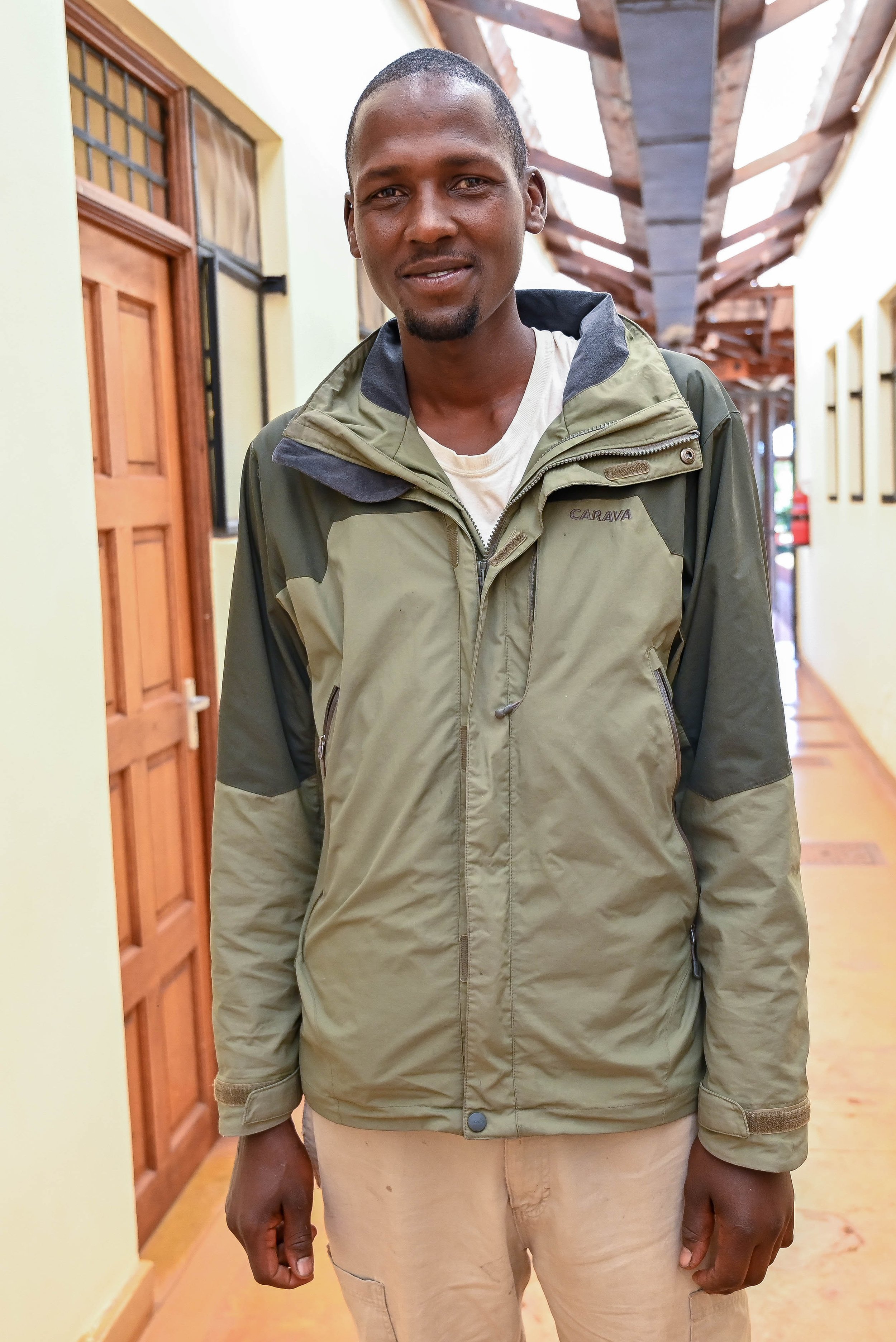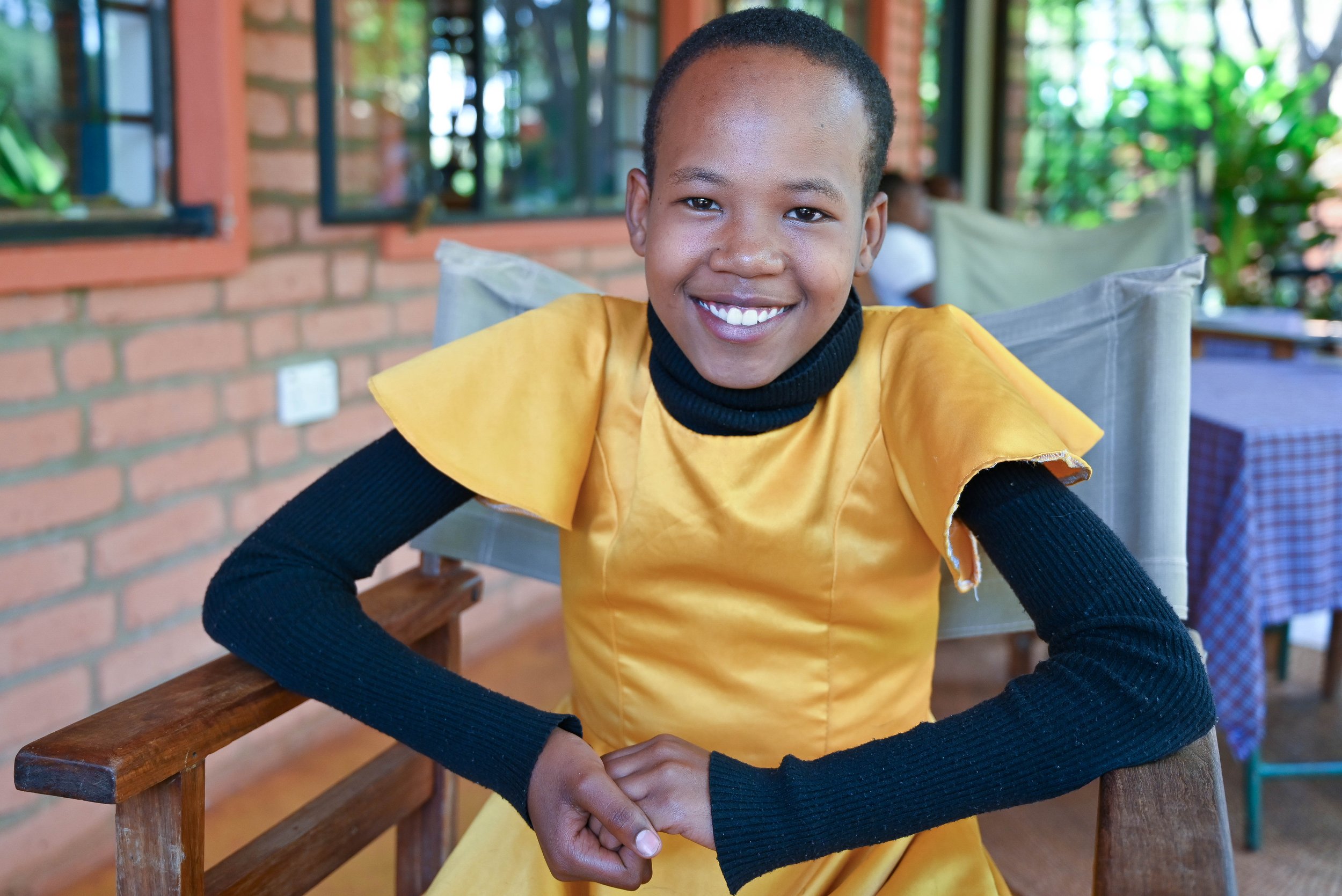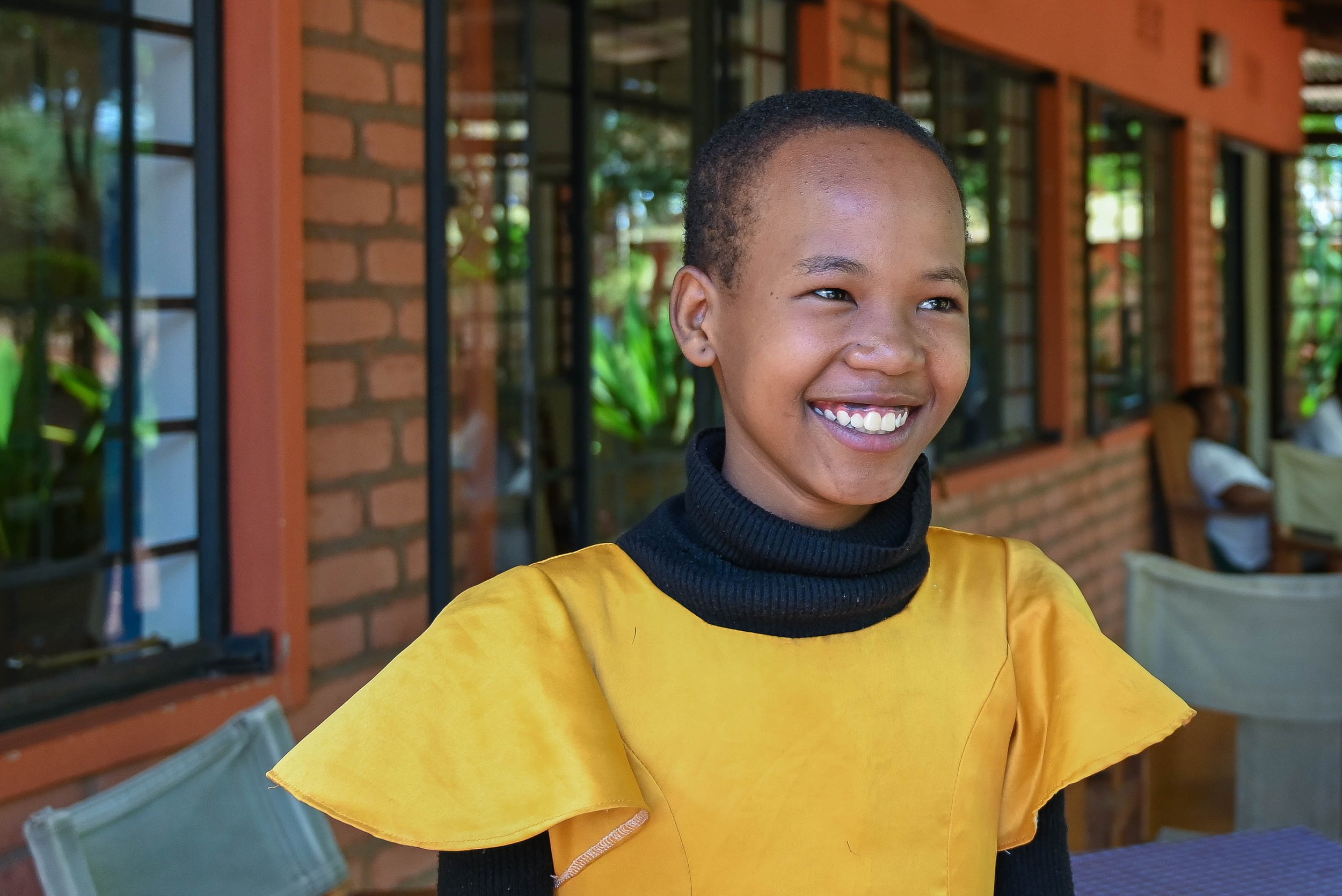On International Volunteer Day, we highlight the stories of two of FAME’s volunteers, Drs Peter and Amanda Wallis. Together with their two small children and sponsored by the Australian Volunteers Program, they have dedicated a year to volunteering at FAME. Dr. Peter specializes in pediatrics, while Dr. Amanda is an emergency physician.
Dr. Amanda Wallis
Dr. Amanda Wallis
Dr. Amanda and Christopher Mtiso (left), Head of FAME’s surgical ward
“My husband Peter and I first came to FAME as an accidental side trip when we made our first trip to Tanzania post-pandemic. Australians were finally allowed to leave Australia, so we needed to bring our not-quite-two-year-old son (born in the early days of the pandemic) to meet the part of his family that lives in Arusha. It was a wonderful family reunion trip and great to be part of the big wide world again.
During our trip, it so happened that word got out that FAME was looking for volunteers to help develop their Paediatric and Emergency Medicine departments as priorities in their new strategic plan – Pete happens to be a Pediatrician and I am an Emergency Physician… Additionally, Pete and I have a love affair with Global Health, having always spent time working in Australia and in less well-resourced countries. We were just starting to discuss where we might go to work next, for the first time with a child in tow!
“So, we were packed off to Karatu to meet the team at FAME, leaving our toddler with his new-found family in Arusha! Let’s just say that after a few hours visiting FAME, meeting the amazing staff, connecting with the visionary Frank and Susan, gaining a basic understanding of the mission and workings of the hospital and discovering the incredibly welcoming community (both hospital and wider), we found it very difficult to find reasons NOT to come to volunteer at FAME!”
It did seem too good to be true, though – after all, after 15 years visiting Tanzania, Emergency Medicine has always seemed somewhat enigmatic to those who have asked what I do! So, it was not without a little nervousness that we finally arrived to volunteer at FAME for a year, thanks to the support of the Australian Volunteers Program, a bit over a year after our first visit, with a new baby and toddler!
“The nervousness has not been justified. The FAME family (it often feels more like a family than a workplace) has been incredibly welcoming to our little family. From the wonderful guards and gardeners and housekeepers who come past our home and help fill our kids’ lives with fun, dancing and laughter to the various dedicated clinical, clerical and managerial staff we work with daily, FAME has managed to create a rare collaborative and caring culture that inspires you to want to be part of it. ”
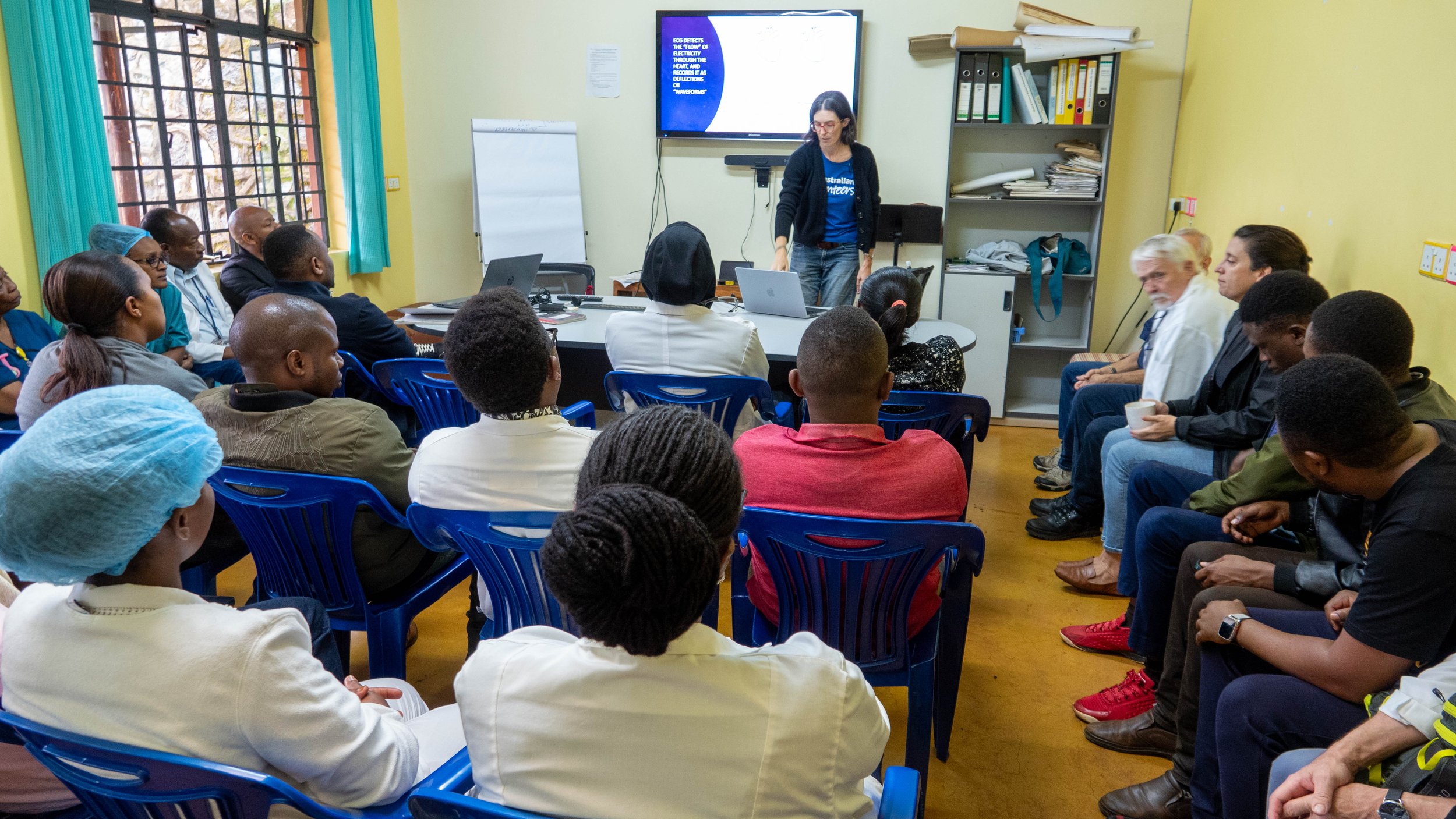
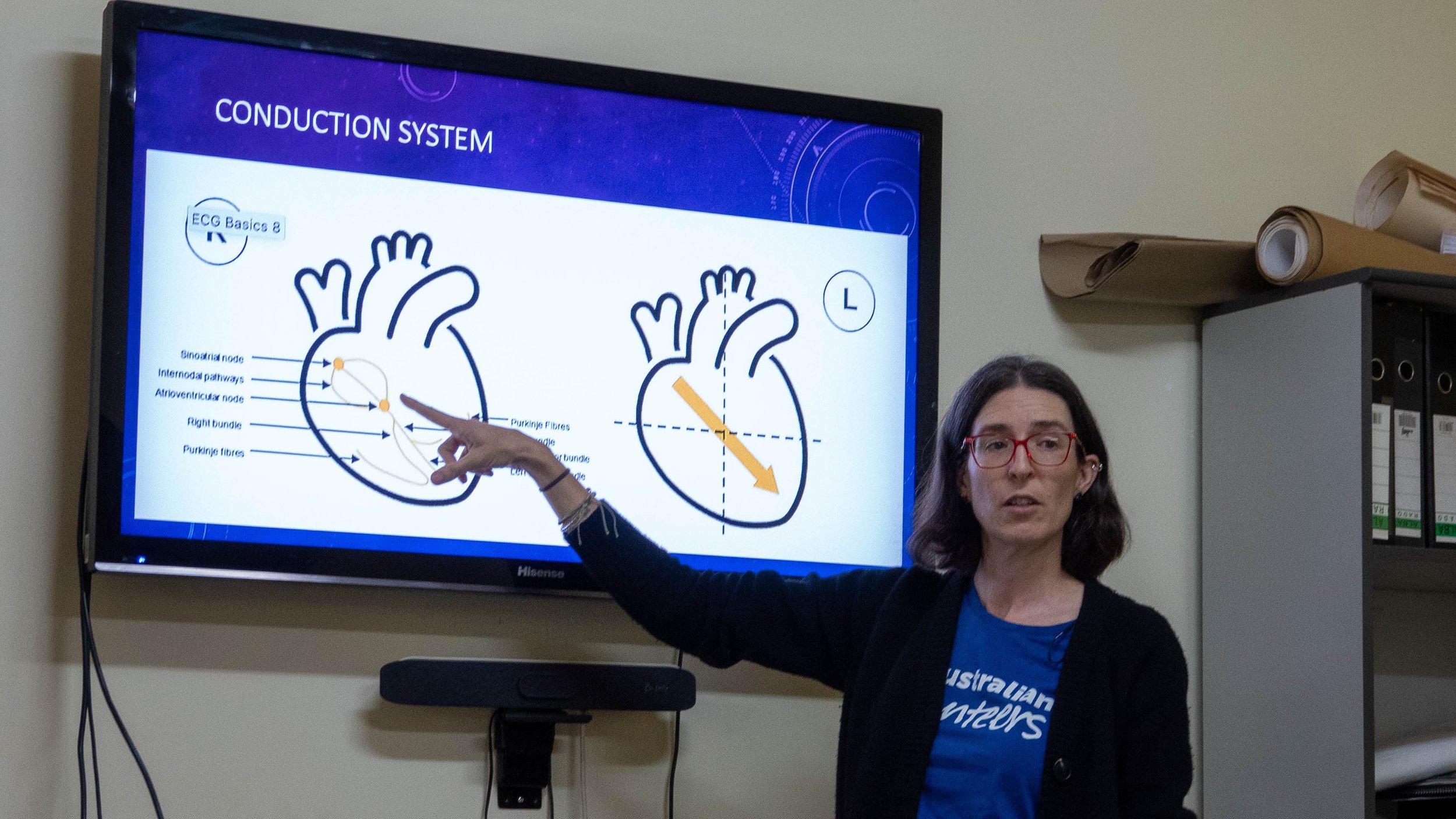
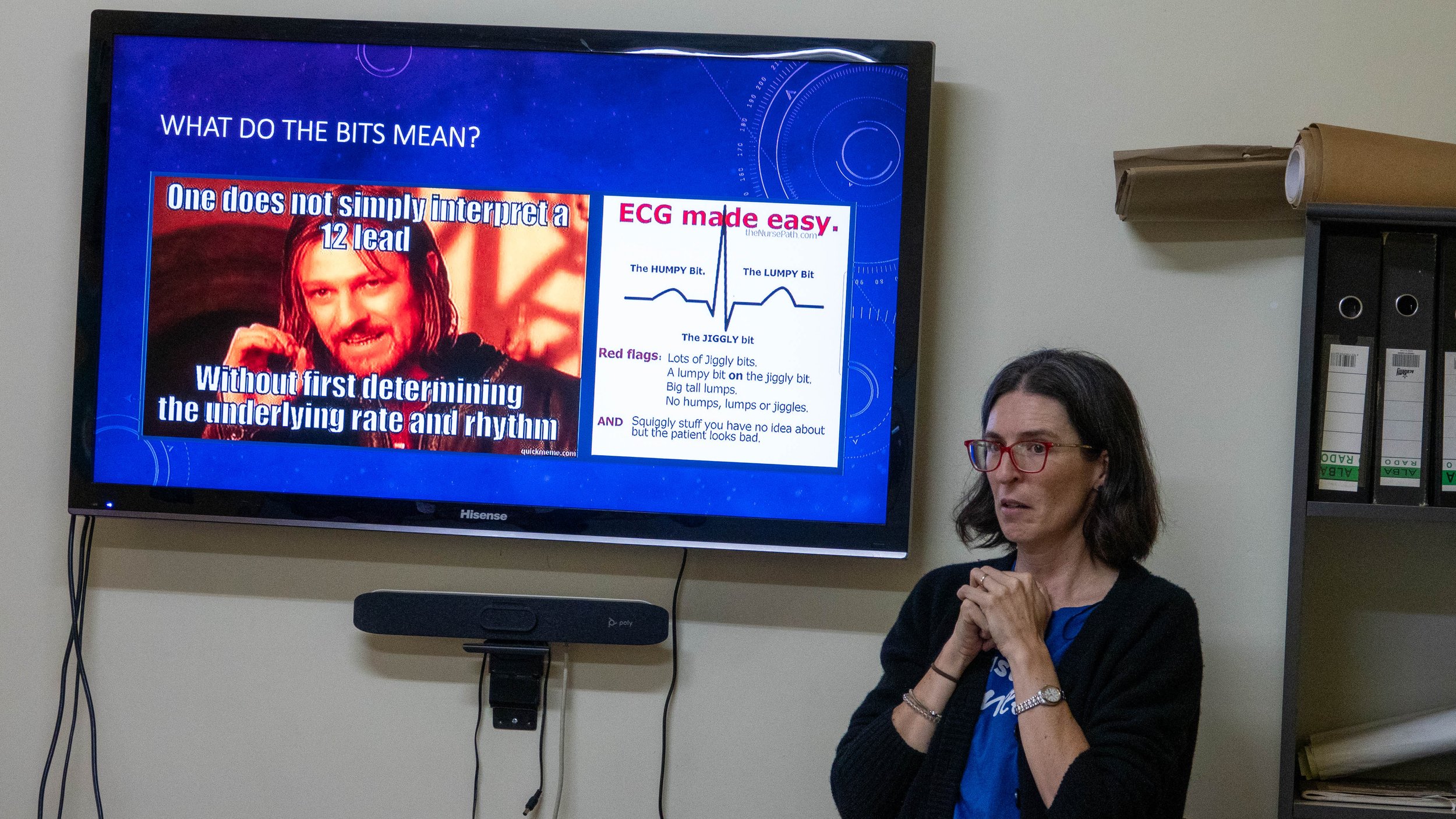
One of the duties for FAME volunteers involves providing training to our Tanzanian staff. Dr. Amanda is pictured training doctors on the use of an electrocardiogram (ECG) for diagnosing heart conditions.
Dr. Amanda provides the team with an update on her progress in learning Swahili and needless to say, they appear thrilled! From left: FAME’s Joram Sumawe, Head of the Outpatient Clinic, Kizito Kileu, Head Nurse and Christopher Mtiso (standing), Head of Surgical Ward.
“I feel very lucky to have found a place where I can express both my Emergency Medicine and Global Health enthusiasm. It is very exciting to have found a team of people who have made Emergency Care a priority and who share my enthusiasm enough to have built a new Emergency Department that I am privileged to be present for the opening of. I am very excited about the chance to work with the FAME team over the next 9 months while we try to optimize the growth and development of this new space and department from birth to toddlerhood, which I am sure will be a challenging but very rewarding journey!”
Dr. Peter Wallis
Dr. Peter Wallis
Dr. Peter with a pediatric patient
“I have been lucky to visit Tanzania several times since my first trip as a newly graduated doctor in 2003. My wife Amanda and I have also worked in Tanzania and several other African and Southeast Asian countries.
“We have been aware of that cardiac anesthetist out in Karatu for some time [Dr. Frank], but when we finally visited FAME last year, we knew we just had to work here. As you walk through the gates, you can feel that this place is different. Staff CARE, people are thirsty for learning and happy to teach us too. The campus on the hill is beautiful, with birds, trees and views of the Ngorongoro Crater. Systems work and supplies are available. So we came back.”
We arrived here in July with our 3-year-old son and our then 7-month-old daughter. FAME is such a great place to raise young children; there is a strong sense of community here and the kids feel very safe and loved. Ollie goes to school at Black Rhino Academy, just on the other side of the field and we can ride our bikes there with him when it is not too muddy.
“After working in pediatrics at Selian Hospital in Arusha, I decided to become a pediatrician. The kids here come in so sick, but with the right treatment, we can fix them and they have the rest of their lives ahead of them. I also love neonatal medicine and babies get referred here from all around the region. What the team here can achieve with a few resources and a lot of care is amazing. Babies who otherwise would die at home are alive today because FAME is here. This is exactly why I went into pediatrics.”
“Our family is thriving here. We are here for a year, but I hope we never leave!”
Editors Note: FAME would like to express our immense gratitude to the Australian Volunteers Program for being an incredible partner in this work and sponsoring Drs Pete and Amanda’s 12-month assignment at FAME.













